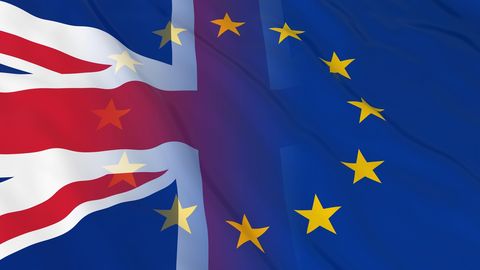Our vision on …
Political Update September/October 2021: bilateral relations, Covid & Cop26

Bilateral relations
Bilateral relations on the political level are on a shaky footing, and an Anglo-French summit, which would normally take place every two years, has not been held since 2018. Following six months of low-level disputes on everything from sausages to fishing to vaccines, diplomatic relations took a turn for the worse last month when the AUKUS defence pact was announced between the United Kingdom, Australia and the United States. France and Australia had agreed in 2016 that France would supply Australia with 12 conventionally powered submarines at a cost of £47billion, a deal that was torn up with the signing of the AUKUS agreement which included a deal for Australia to instead purchase either US or UK built nuclear-powered submarines. The French foreign ministry recalled its ambassadors to both the United States and Australia - an unprecedented move - amidst the fallout. It has not been confirmed why the French foreign ministry did not recall its Ambassador to the United Kingdom; whilst UK government sources insisted this was a sign of the strength of the bilateral relationship, others believe it was instead a way of making Britain seem insignificant; the minor player in the AUKUS pact.
Since then, tensions have been simmering over the Northern Ireland agreement, with UK Brexit Minister David Frost using this week’s Conservative Party Conference to threaten use of the Article 16 mechanism of the Northern Ireland Protocol. Article 16 allows either side to take unilateral action if the protocol is causing “serious economic, societal or environmental difficulties that are liable to persist”. In return, if either side disagrees with unilateral safeguard action, they can retaliate with “proportionate rebalancing measures” The European Commission will respond next week to the UK’s proposal from July to renegotiate swathes of the agreement. Frost also warned that if no agreement could be reached, the UK would be “robust” if the EU retaliated by imposing tariffs or other barriers to trade flow between Great Britain and the EU.
An agreement between the UK and France to reduce the number of risky cross-channel border crossings by migrants and asylum seekers has also led to some hostile briefing. French interior minister Gérald Darmanin suggested that his British counterpart Priti Patel was guilty of attempted "blackmail" after the UK complained France was not doing enough to prevent migrant boats leaving or to apprehend them and threatened to push their dinghies back towards French waters - a move France says would be illegal.
A smaller news story, but nonetheless important in the context of soft power and cultural ties; Marks & Spencer has said it is closing 11 of its French stores by the end of the year because supply chain problems since Brexit had made it "near impossible" to maintain standards of food supply.
Covid
Following a series of changes to the UK Covid travel regulations, there is now effectively free travel between the two countries for the fully vaccinated, with no restrictions or requirements to quarantine. Fully vaccinated travellers will only have to book a day 2 Covid test. Unvaccinated travellers arriving in the UK from France will have to quarantine for 10 days with day 2 and day 8 tests, and unvaccinated travellers entering France from the UK must have a “compelling reason” for their journey. Additionally, they must quarantine for 7 days and present a sworn statement, plus a negative test taken within 24 hours of travel. Travellers with only one Covid jab but who caught Covid beforehand are considered as non-vaccinated. Technical difficulties in merging the two countries’ digital Covid passes (NHS app and Pass Sanitaire) have now been ironed out. The UK cancelling a £1.2bn contract with French pharma firm Valneva to supply 100m covid vaccines last month has also not helped the tension between the two countries.
Look Ahead
The UK will be looking to COP26 as an opportunity to demonstrate climate leadership, part of its vision for a “global Britain” outside of the European Union. The UK’s reputation is somewhat tied to the success of the summit and the strength of any agreement reached. After two years of stilted progress in online talks in the run up to the summit, major breakthroughs are needed when leaders finally meet in person in Glasgow next month. As with all gatherings of world leaders, much of the action will happen “on the margins” and a constructive and cordial meeting between Macron and Johnson is needed more than ever to reset relations between allies after a tense and difficult few months.